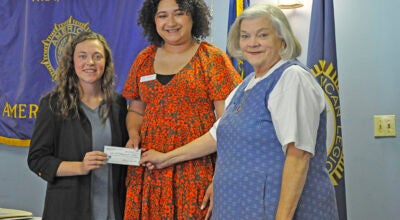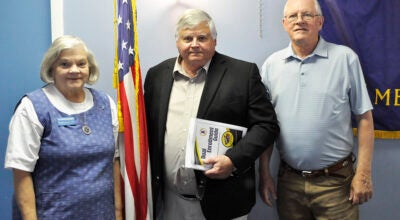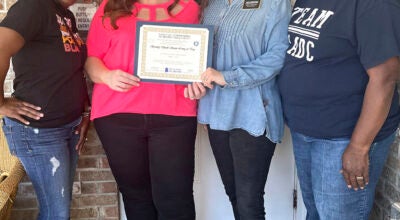Group petitions for more sewage spill regulations
Published 3:00 am Saturday, March 11, 2017
Nine conservation groups from across the state petitioned Alabama’s Environmental Management Commission (AEMC) Tuesday to write regulations requiring sewage treatment facilities to notify the public when they are exposed to sewage spills and overflows.
The petition points out the lack of public notification in Northport and Dothan, but Choctawhatchee Riverkeeper Michael Mullen said cities like Troy also need better notification procedures to warn of even small sewage spills.
“A sewage spill could go into a little creek where neighborhood kids are playing in it and they don’t know,” Mullen said. “It doesn’t necessarily have to be so big you can smell it to be a health concern…
“Last year, children in Dothan were exposed to sewage in a local creek thanks to inadequate public notification of sewage spills in the Beaver Creek and Little Choctawhatchee River drainages”
According to the EPA Experts Workshop on Public Health Impacts of Sewer Overflows, “Sewer overflows are a human health issue because they can create the potential for exposure to disease-causing pathogens, including protozoa, bacteria, and viruses. Activities involving exposure to [sewage] contaminants through swimming or other contact can lead to infectious diseases such as hepatitis, gastrointestinal disorders, dysentery, and swimmer’s ear. Other forms of bacteria can cause typhoid, cholera, and dysentery. Human health also can be impacted from ingesting fish or shellfish contaminated by [sewage] discharges.”
Mullen said sewage spills are inevitable, but it’s up to cities and counties to ensure that when they do happen there is a communication plan in place to make sure people know the water is not safe.
“The main thing is when a spill reaches a waterway, the only notification right now is putting orange cones or flags at the spill site and word doesn’t get out,” Mullen said. “Someone half a mile downstream might be putting a kayak in or swimming and not know there’s been a spill…
“Children playing in their neighborhood creek like I did as a youngster; paddlers and fishermen– everyone downstream should be promptly alerted to sewage spills and overflows.”
The only requirement right now is that the spill is reported to the local health department and the Alabama Department of Environmental Management (ADEM), Mullen said.
“What we’re asking for is ADEM to do a rule change to clarify and strengthen what’s required.” Mullen said. “Local health departments may not be able to notify everyone. They need to have an opt-in system for people to be alerted when there’s been a spill or get the word out to local radio stations. What we’re asking is that sewage treatment facilities have a waste response plan.”
The groups contend that citizens have a fundamental right to know when their local streams and rivers are unsafe for swimming, fishing and other recreation to protect themselves and their families from the serious consequences of sewage pollution. Submitting the petition were Alabama Rivers Alliance, Black Warrior Riverkeeper, Cahaba Riverkeeper, Choctawhatchee Riverkeeper, Coosa Riverkeeper, Friends of Hurricane Creek, Little River Waterkeeper, Mobile Baykeeper, and Tennessee Riverkeeper.
Visit the CRK website at http://choctawhatcheeriver.org or call Choctawhatchee Riverkeeper Michael Mullen at 334-807-1365.





